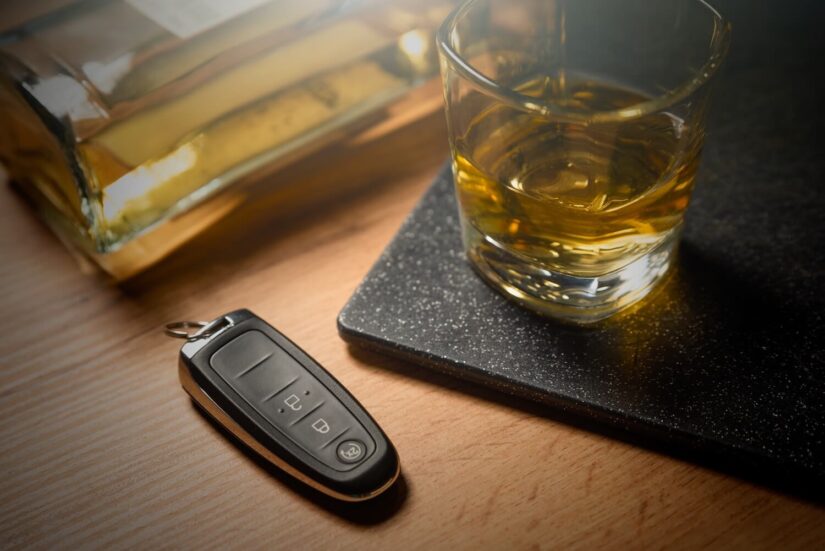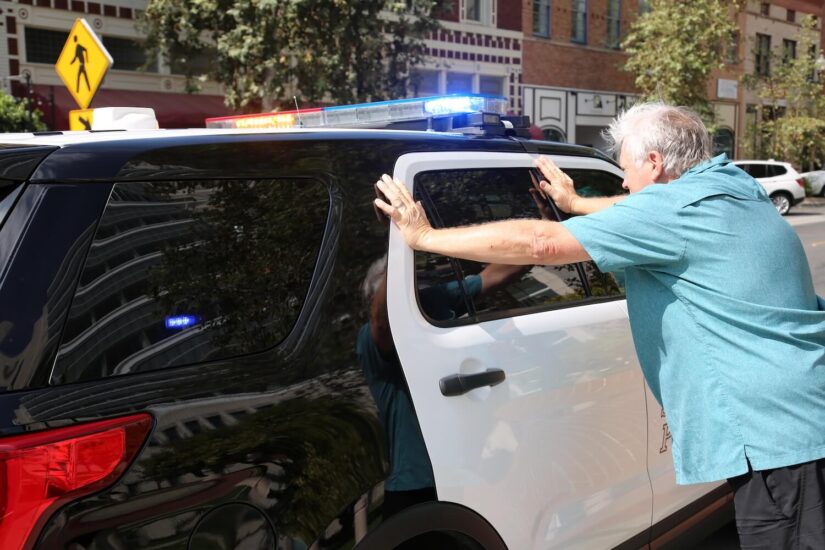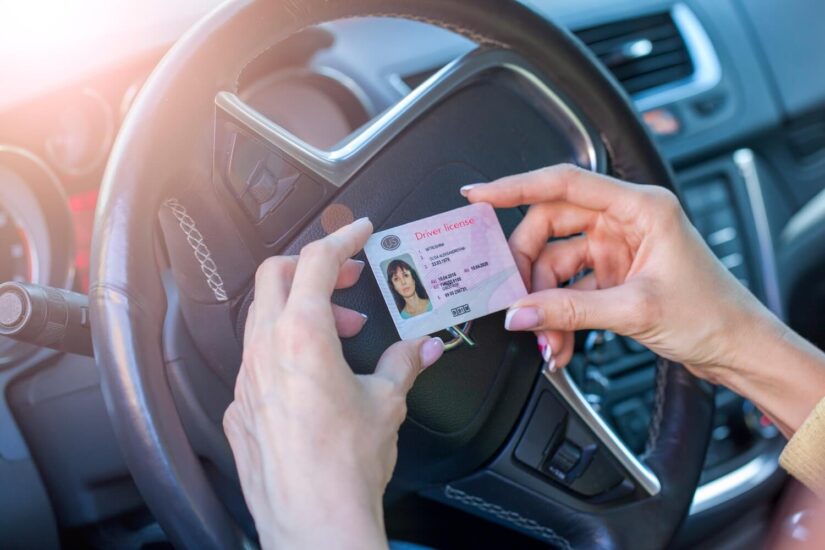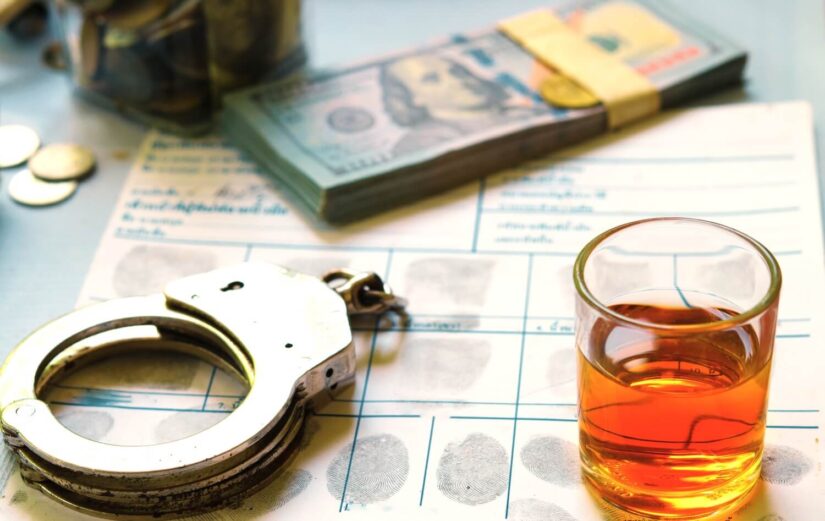
June 26, 2025
Facing a third DWI in Texas? Here’s what you need to know upfront:
- It’s a third-degree felony, with penalties including prison sentences ranging from 2 to 10 years and fines of up to $10,000.
- Your driver’s license may be suspended for a period ranging from 180 days to 2 years.
- You may face mandatory jail time, even with probation, and need to complete alcohol education, community service, or install an ignition interlock device.
- Bail amounts often start at $10,000 and can go higher.
- New laws introduced in 2025 impose stricter penalties for repeat offenders, including mandatory minimums and harsher consequences for aggravating factors.
Key Points:
- Probation: Possible but requires serving 10–180 days in jail and strict compliance with conditions.
- License Reinstatement: Requires SR-22 insurance, fees, and completion of court-mandated programs.
- Long-Term Impact: A felony record affects jobs, housing, and professional licenses, with no option for expungement or record sealing.
Quick Tip: You only have 15 days after arrest to request a hearing to contest license suspension. Don’t delay seeking legal help.
Understanding the stakes and taking immediate action is critical to minimizing the consequences.
Criminal Penalties and Sentencing for a Third DWI
Facing a third DWI charge in Texas is no small matter. It’s classified as a third-degree felony, carrying serious consequences that can have a lasting impact on your life.
Fines and Prison Sentences
If convicted of a third DWI, you could face a fine of up to $10,000, along with mandatory surcharges ranging from $3,000 to $6,000. On top of that, prison sentences can range from 2 to 10 years. Even if the court grants probation, you’re still required to serve a minimum of 10 days in county jail.
Probation Options and Requirements
While probation is technically an option for a third DWI, securing it is far more challenging compared to earlier offenses. Whether probation is granted depends on factors like your criminal record, the details of the incident, and the strength of your legal defense. If approved, probation begins with 30 to 180 days of jail time, followed by a probation period that can last anywhere from 5 to 10 years.
During probation, you may be required to:
- Attend regular meetings with a probation officer
- Submit to random drug and alcohol testing
- Complete DWI education and intervention programs
- Perform extensive community service (often 300 hours or more)
- Install an ignition interlock device on your vehicles
Additional restrictions, such as curfews and travel limitations, are also common. Taking proactive steps, like enrolling in alcohol treatment programs before your court date, may work in your favor when dealing with prosecutors. However, any violation of probation terms can lead to revocation and additional jail time.
Factors That Increase Penalties
Certain circumstances can make an already serious situation even worse. Aggravating factors, such as having a child passenger, a high blood alcohol concentration, or causing injury or death, can lead to harsher penalties. Prior felony convictions are another major factor. For instance:
- A single previous prison sentence can escalate a third DWI to a second-degree felony, with a potential sentence of 2 to 20 years.
- Two prior prison sentences may result in a sentence of 25 years to life.
If the offense involves injuries or fatalities, the charges and penalties can become even more severe.
Additionally, bail for third-degree felony DWI cases often starts at $10,000 and can climb to $20,000 or more.

A third DWI conviction is not just another mark on your record—it’s a life-altering event with far-reaching consequences. Knowing the potential penalties and understanding the legal landscape is critical as you navigate this challenging situation.
Driver’s License Consequences
A third DWI conviction in Texas doesn’t just carry criminal penalties—it also comes with serious repercussions for your ability to drive. These administrative penalties can disrupt your daily life, making it harder to work, take care of family responsibilities, or handle routine tasks. The impact on your mobility and legal standing is significant.
License Suspension and Reinstatement
If you’re convicted of a third DWI, your driver’s license will be suspended for 180 days to 2 years. This suspension typically begins 30 days after the conviction. To challenge the suspension, you must request an Administrative License Revocation (ALR) hearing from the Texas Department of Public Safety (DPS) within 15 days of your arrest. If you miss this deadline, the suspension automatically takes effect.
Once the suspension is in place, reinstating your license requires meeting all court-ordered conditions. This might include completing alcohol treatment programs or DWI education courses. You can check the Texas DPS Driver License Eligibility Portal to find out the exact reasons for your suspension, any remaining fees, and the length of your suspension.
Another key requirement for reinstatement is maintaining SR-22 insurance, a high-risk vehicle insurance policy. You’ll need to keep this coverage for two years to meet Texas’ minimum insurance standards.
Reinstatement fees include $125 for administrative license suspensions or $100 for DWI-related suspensions.
Ignition Interlock Device Requirements
For third-time offenders, an ignition interlock device may be mandatory to regain limited driving privileges. This device connects to your vehicle’s ignition system and requires you to provide a breath sample before the car will start. If alcohol is detected, the vehicle won’t operate. Additionally, the device may prompt you for periodic retests while driving.
You’re responsible for all costs associated with the ignition interlock, including installation, monitoring, and eventual removal. While these expenses can add up, the device is often the only way to legally drive during your suspension period.
Occupational Driver’s License Options
If your regular license is suspended, an Occupational Driver’s License (ODL) can allow you to drive under specific conditions. This restricted license is designed for essential activities like commuting to work, attending school, or running necessary errands.
To obtain an ODL, you’ll need a court order, which must then be submitted to the Texas DPS. However, DPS may deny your application in certain situations, particularly for repeat offenders. If you’ve had multiple offenses, you may need to wait one year from the start of your current suspension before applying.
The application process involves several steps and fees:
- Obtain a certified Abstract Type AR Driving Record.
- Provide proof of SR-22 insurance.
- Submit documentation proving your essential need to drive.

The cost for an ODL is $10 for a one-year license or $20 for a two-year license, plus a $125 reinstatement fee.
An ODL comes with strict limitations. The court order will outline specific times, locations, and reasons for which you’re allowed to drive. Violating these terms can lead to immediate revocation of the ODL and additional criminal charges. You’re also required to carry a certified copy of the court order and your SR-22 insurance form whenever you drive under an ODL.
While the court order can act as a temporary license for 45 days while DPS processes your application, third-time DWI offenders may face a five-year suspension in some cases without the option to apply for an ODL. For these individuals, the inability to drive legally adds another layer of hardship, affecting both personal and professional aspects of life.
Mandatory Programs and Court-Ordered Requirements
A third DWI conviction in Texas comes with more than just fines and possible jail time. Courts typically impose mandatory programs and monitoring requirements aimed at addressing the root causes of repeat offenses and ensuring compliance with the law. These obligations are crucial to avoid further penalties for non-compliance, and they often include alcohol education, treatment programs, community service, and monitoring devices.
Alcohol Education and Treatment Programs
If you’re convicted of a third DWI, you’ll likely be required to complete alcohol education and treatment programs. These programs are often tied to probation or sentencing conditions. For repeat offenders, the court may mandate a more extensive 32-hour course alongside standard requirements.
In addition, you might need to undergo a Drug and Alcohol Evaluation. This evaluation assesses your level of substance use and determines whether further treatment is necessary. Conveniently, these courses are available both in-person and online across Texas, making it easier to meet court requirements.
Here’s a breakdown of typical costs:
- 12-hour course: $40
- 32-hour course: $250
- Drug and Alcohol Evaluation: $150
- Drug Offender Education Program: $80
Timely completion of these programs is critical. Missing deadlines or failing to comply could lead to probation violations and even additional jail time.
Community Service and Monitoring Requirements
For a third DWI offense, courts often require offenders to complete between 160 and 600 hours of community service. The exact number depends on factors like your criminal history and the circumstances of your case. Community service can sometimes offset certain fines or, in rare cases, reduce jail time.
Examples of community service include:
- Participating in environmental cleanup projects
- Volunteering at food banks
- Mentoring programs
If you’re placed on probation, regular check-ins with a probation officer are usually required. These check-ins ensure compliance with all court orders. Violating probation terms can result in the revocation of probation, meaning the rest of your sentence would be served in jail.
Other Penalties and Monitoring Devices
Third-time DWI offenders often face additional monitoring measures, one of the most common being the SCRAM (Secure Continuous Remote Alcohol Monitoring) bracelet. This ankle device monitors alcohol consumption by sampling perspiration every 30 minutes. Unlike ignition interlock devices, the SCRAM bracelet provides continuous monitoring.

The SCRAM system has shown high effectiveness, with 99.4% of monitored individuals remaining sober during an average monitoring period of 111 days. However, the court may require longer use depending on your case.
Typical costs for SCRAM bracelets include:
- Installation fees: $50–$100
- Monthly monitoring fees: Around $435
- Daily monitoring fees: $10–$12
The device also features anti-tamper technology to detect any attempts to bypass it. While wearing a SCRAM bracelet, you’ll need to avoid alcohol-based products—like certain mouthwashes or medications—to prevent false positives.
These monitoring devices are often used in conjunction with court-ordered rehabilitation programs. Meeting all these obligations requires careful coordination and strict adherence to court directives to avoid further penalties or complications.
Long-Term Effects and Legal Process
A third DWI conviction in Texas has far-reaching consequences, leaving a permanent mark on your record and influencing many aspects of your future. Classified as a third-degree felony under Texas Penal Code Section 49.09, this conviction becomes a lasting part of your criminal history, affecting everything from career opportunities to personal relationships. Understanding these impacts and navigating the legal process effectively can play a critical role in minimizing the damage.
Employment, Background Checks, and Personal Life
A felony DWI conviction creates significant barriers in the job market. Employers conducting background checks will see the conviction, making it difficult to secure jobs, particularly those involving driving or requiring high levels of trust. For professionals in fields like nursing, teaching, medicine, law, or transportation, the consequences can be even harsher. Licensing boards in Texas often respond to DWI convictions with disciplinary actions, including suspension or revocation of licenses. This can also block access to future licenses or certifications, cutting off entire career paths.
The effects don’t stop at employment. Finding housing becomes challenging, as landlords frequently deny applications based on felony convictions. Beyond the practical hardships, the social stigma surrounding drunk driving can lead to judgment, isolation, and a damaged reputation in your community.
Financial strain is another common outcome. Higher fines, legal fees, and steep insurance premiums create long-lasting financial burdens. On a personal level, relationships can suffer greatly. Family and friends may feel betrayed or disappointed, leading to strained or even broken connections that take years to rebuild. Additionally, prior convictions can draw extra attention from law enforcement, subjecting you to increased scrutiny.
These challenges highlight the importance of taking swift action to protect your rights and mitigate the impact of a third DWI conviction.
Your Rights and Legal Options
Facing a third DWI charge requires immediate legal intervention to address the potential long-term consequences. The first and most important step is hiring a skilled DWI attorney who can work to reduce your sentence, explore alternative programs, and help you qualify for probation.
Deadlines are critical. For example, you must request an Administrative License Revocation (ALR) hearing within 15 days of your arrest to contest the suspension of your driver’s license. Missing this deadline results in an automatic license suspension without a chance to fight it.
The Napier Law Firm offers 24/7 availability and free consultations to help you understand your options immediately after an arrest. With extensive experience in Texas DWI cases, the firm provides guidance through the legal process while safeguarding your constitutional rights. Their tailored strategies aim to secure the best possible outcome for your case.

Taking proactive steps, such as enrolling in a state-approved DWI education program before your court date, can demonstrate accountability to the court. If substance abuse contributed to the offense, seeking counseling or treatment shows a commitment to change, which can positively influence the court’s perception.
Defense Strategies
Given the serious consequences of a third DWI conviction, a strong defense is essential. The Napier Law Firm tailors its strategies to the unique details of each case. Even with a third charge, there are often opportunities to challenge the evidence or procedures used during the arrest.
Key defense strategies include contesting the traffic stop if there was no reasonable suspicion, questioning the accuracy of field sobriety tests or breathalyzer results, and identifying procedural errors during the arrest. For example, law enforcement must follow specific rules, such as issuing proper Miranda warnings, administering standardized sobriety tests, and ensuring that breathalyzer equipment is properly maintained and calibrated.
By carefully examining the prosecution’s case, the firm often uncovers weaknesses that can lead to reduced charges or alternative sentencing options. Negotiating for probation instead of a lengthy prison sentence is especially important for third-time offenders. While probation still requires a minimum 10-day jail term, it can help avoid the full 2- to 10-year prison sentence, allowing you to maintain employment and family ties.
With experienced legal counsel like The Napier Law Firm, you can be confident that all possible defense strategies will be explored, ensuring your case receives the attention it deserves under Texas law. This thorough approach can make a significant difference in achieving the best outcome for your situation.
FAQs
What should I do right away after being arrested for a third DWI in Texas to minimize potential penalties?
If you’ve been arrested for a third DWI in Texas, it’s crucial to act quickly to protect your rights and minimize potential penalties. The first step? Contact an experienced criminal defense attorney immediately. They’ll help you understand the legal process, evaluate your situation, and guide you toward the best course of action.
Time is of the essence—you have just 15 days from the date of your arrest to request an Administrative License Revocation (ALR) hearing. This hearing could be your chance to prevent the suspension of your driver’s license.
It’s also important to document everything you can recall about the arrest. Details like the timeline, your interactions with law enforcement, and any tests you were given could play a key role in building your defense. Early legal involvement might open up opportunities for plea deals or alternative sentencing programs, which could help reduce jail time, fines, or other long-term consequences. Acting quickly and getting professional legal advice can make a significant difference in how your case unfolds.

How do factors like a high blood alcohol level or having a child in the car impact the penalties for a third DWI in Texas?
Aggravating circumstances like a blood alcohol concentration (BAC) of 0.15 or higher or having a child passenger under 15 years old can lead to much harsher consequences for a third DWI in Texas. These factors often bring longer jail terms, steeper fines, extended license suspensions, This may include additional requirements, such as alcohol education programs or the installation of an ignition interlock device.
For instance, driving with a child passenger could result in felony charges for child endangerment, which come with their own set of severe penalties. Similarly, a high BAC is treated more seriously because it poses a greater threat to public safety. If you’re dealing with a third DWI and these aggravating factors, it’s essential that you know your legal options and get professional help to navigate the complex legal process.
What are the long-term effects of a third DWI conviction in Texas, and how can I reduce the impact on my life and career?
A third DWI conviction in Texas carries serious, long-term repercussions that can ripple through both your personal and professional life. For starters, a permanent criminal record can make finding a job or advancing in your career incredibly difficult. It could even lead to losing professional licenses. On top of that, the financial hit from fines, legal fees, and higher insurance premiums can be overwhelming. Add to this the possibility of jail time and a suspended license, and it’s clear how such a conviction can disrupt your daily life and strain personal relationships.
That said, there are steps you can take to lessen these impacts. Working with an experienced attorney is essential—they can help explore options like reducing charges or penalties. Taking part in court-ordered programs, showing a commitment to rehabilitation, and demonstrating responsibility can also work in your favor. In some situations, you might even qualify for record sealing or expungement, which can help reduce the long-term effects on your future.